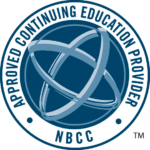
Level One offers a thorough grounding in the theories and techniques of Hakomi Mindful Somatic Psychotherapy. Level One includes in-depth coverage of the Hakomi principles, Hakomi theories, maps and models as well as specific techniques. Training weekends include a mix of didactic material, experiential exercises, discussion, movement/embodiment exercises, group maintenance time and supervised practice times.
This training is for professional therapists, clinical social workers, and counselors, students and interns of clinical social work, counseling, and psychotherapy, licensed healing arts practitioners, and people transitioning into the field of somatic psychotherapy who want to learn the method in its entirety.
The goals of the Training are to provide students with: first, a deep understanding of the principles of the Hakomi Method and the ability to work within them in an attitude of loving presence. Second, an understanding of the techniques of the Hakomi therapeutic process and the ability to use these precisely and appropriately. Third, an understanding of the organization of personality and character into patterns that reveal developmental and cultural wounding, and the ability to use this understanding discriminatingly. Fourth, an understanding of one’s own inner organization and the process of using self as an instrument for therapy.
Learning Objectives:
A. Hakomi Principles
B. Hakomi Skill: The Therapeutic Relationship
C. Hakomi Skill: Mindfulness
D. Hakomi Skill: Tracking
E. Hakomi Skill: Contact
F. Hakomi Skill: Identifying Themes
G. Hakomi Skill: Working with Regressive (Child) States
H. Therapeutic Interventions
I. Transformation: Working at the Nourishment Barrier
J. Integration
K. Stages of the Hakomi Process
L. Trauma
The Colorado/Northeast Hakomi team has a deep history in Colorado and the Northeast that spans the last 30 years. We’ve trained over 750 students in our Comprehensive Trainings, and close to 2000 people in Intro Workshops. We aim to continuously develop and refine our training approach, in collaboration with our Hakomi colleagues around the world.
Our team currently offers an innovative Hybrid structure that meets two Fridays a month live-online, with four in person immersions over Levels 1 & 2. One third of our live class hours are in person. The online cohorts include students and teaching assistants from 13 states, while in person modules meet in smaller groups regionally. We love this mix because it provides students access to a larger faculty and more diverse cohort online, with a more intimate group experience for in person modules.
As a faculty we are passionate about our own growth and development as a team. We continue to update our curriculum and practices to increase accessibility and inclusion for people in marginalized communities. We will continue to integrate new learning in the fields of neuroscience, attachment theory, cultural impacts on identity, and trauma recovery – including intergenerational and collective trauma.
Faculty:
Trainers: Melissa Grace, MA, Lead Trainer; Jaci Hull, MA, LMFT; Julia Corley, MA, LCMHC
Teachers: Ariana Tosatto, MA, LPC; Kate Mazuy, MA, LPC; Sylvie Lam, MA, LPC; Rupesh Chhagan, CHT, TCMP
2026 Level 1 Dates
Mar 13 & 27
Apr 10 & 24
May 1
May 13 – 16
Jun 5 & 26
Jul 10 & 24
Aug 7 & 21
Sep 11
Sep 30 – Oct 3
Oct 16 & 30
Nov 6 & 20
Dec 5 & 6
Level 1 Hours
Friday hours (on Zoom): 8am – 2pm PT / 9am – 3pm MT / 11am – 5pm ET
In person immersion hours: Wed/Thu/Fri 9:30am – 5:30pm / Sat 9:30am – 3:30pm
CEs
 60 CE’s: (ACEP #5476): Hakomi Institute has been approved by NBCC as an Approved Continuing Education Provider (ACEP No. 5476.) Programs that do not qualify for NBCC credit are clearly identified. Hakomi Institute is solely responsible for all aspects of the program.
60 CE’s: (ACEP #5476): Hakomi Institute has been approved by NBCC as an Approved Continuing Education Provider (ACEP No. 5476.) Programs that do not qualify for NBCC credit are clearly identified. Hakomi Institute is solely responsible for all aspects of the program.
Take an introductory workshop to learn more about our therapeutic approach
4845 Pearl East Cir
Ste 118 / PMB 85162
Boulder, CO 80301-6112